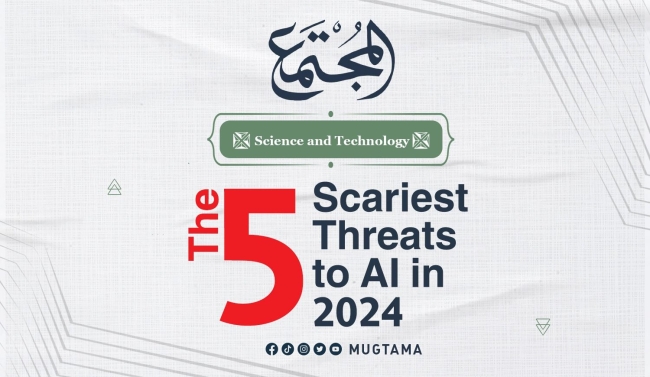The 5 Scariest Threats to Artificial Intelligence in 2024 Featured
Mikko Hypponen: The Cybersecurity Expert
Mikko Hypponen is a 54-year-old expert in battling malware. He has been fighting against dangerous computer programs for decades and has even tracked down their creators. Mikko has won numerous awards and honors for his work and is considered one of the greatest thinkers in the field. He currently works as the chief researcher at "WithSecure," the largest cybersecurity company in the world.
The Revolution of Artificial Intelligence
Mikko believes that artificial intelligence (AI) is going to change everything. He thinks it will be even bigger than the Internet. While he sees the positive impact AI can have on the world, he also worries about the cyber threats that come with it.
The 5 Serious Concerns for 2024
- Deepfake
Deepfakes are videos or audio clips created using AI that can make people appear to say or do things they never did. While the technology is not perfect yet, it has been used for malicious purposes. Mikko warns that the number of deepfake attempts has increased significantly, and people need to be cautious. He suggests using distinct words or passwords to verify if someone is real or fake during video calls.
- Deep Web Scams
Deep web scams are different from deepfakes but can still be dangerous. These scams use automation to target a large number of people. They can be found in various fields, including investment scams, stealing electronic accounts, and even romance scams. Mikko warns that if scammers start using AI to spread their lies and fabricate evidence, the number of victims could increase dramatically.
- Large Language Model Malware (LLMS)
Mikko's research team has discovered malicious software that uses AI to rewrite programming codes. These worms are difficult to detect and can be used for fraud or spreading violence. While some AI platforms can detect them, there is a risk that fraudsters can use them offline, making it harder to track and stop them.
- Day Zero Attack
A day zero attack is when cyber attackers exploit vulnerabilities in software before developers can fix them. AI can be used both to detect these vulnerabilities early and to create new ones. Mikko warns that this type of attack is still in its early stages but could become more widespread in the future.
- Automated Malware
With the rise of automation in cyber-attacks, cybersecurity companies like WithSecure are facing new challenges. Mikko believes that the future of cybersecurity will depend on who can develop and use AI the best. He predicts that fully automated malware will become the number one cyber threat in the world in 2024.


